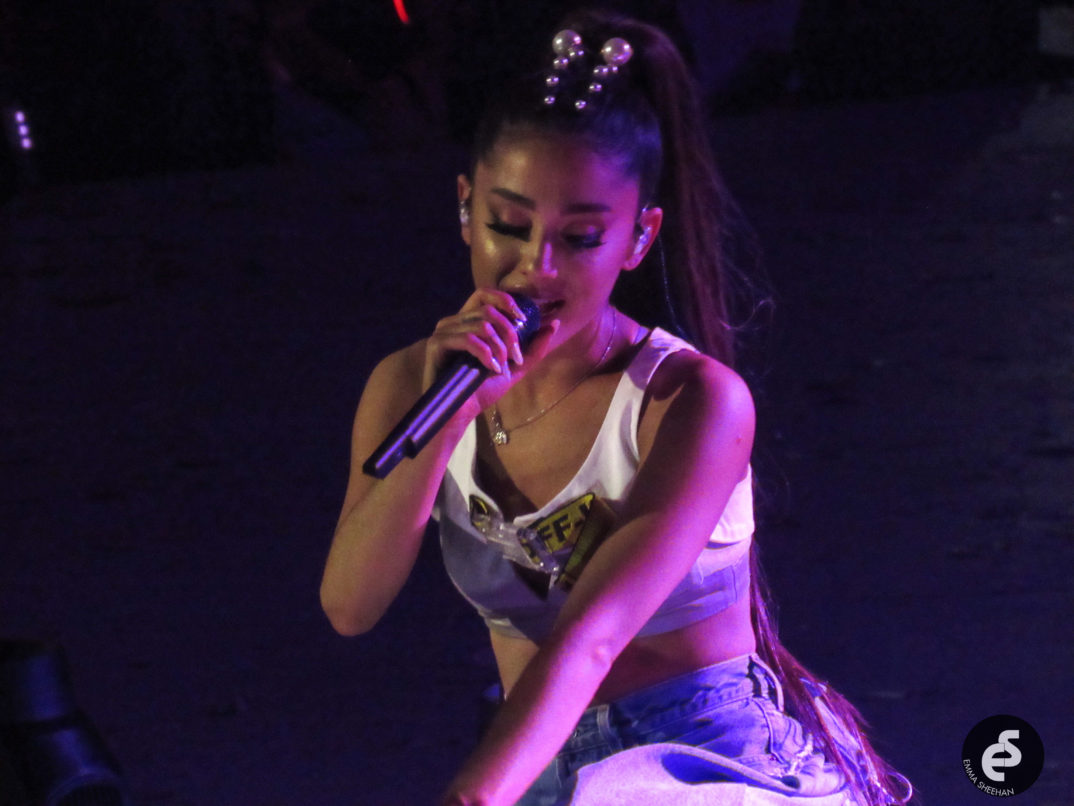Why Blaming Ariana Grande for Mac Miller’s Death is Unethical

Substance Abuse and Mental Health Administration (SAMHSA) hotline: 1-800-662-HELP (4357)
On Friday, September 7, well-loved rapper and talented musician Mac Miller died of a drug overdose, according TMZ. The tragic loss of the 26-year-old musician was a painful shock to many, including singer and Miller’s ex-girlfriend, Ariana Grande. Grande, who is usually active on social media, has been understandably silent, posting only one image on her Instagram.
But every article you read about Miller’s death heavily references his breakup with Grande, despite the fact that she is currently engaged to comedian Pete Davidson. People began blaming Grande for Miller’s death on various forms of social media. And Grande had to go so far as to disable commenting on her Instagram to stop from being blamed for Miller’s death. Essentially, this demonstrates that the pressure put on women to uphold their significant other’s mental health is incredibly damaging.
To better understand this full story, one must go back to the end of Grande’s relationship with Miller. The couple dated for two years before announcing the end of their relationship publically in May of 2018. While there were no hostile feelings on the part of Grande or Miller, when Miller was charged with a DUI, people on Twitter blamed Grande.
Ariana responded to the tweet writing in the notes app of her phone:
“How absurd that you minimize female self-respect and self-worth by saying someone should stay in a toxic relationship because he wrote an album about them… I am not a babysitter or a mother and no woman should feel that they need to be. I have cared from him and tried to support his sobriety & prayed for his balance for years (and always will of course) but shaming/blaming women for a man’s inability to keep his shit together is a very major problem ,…Of course I didn’t share about how hard or scary it was while it was happening but it was. I will continue to pray from the bottom of my heart that he figures it all out and that any other woman in this position does as well.”
And now that Miller has died, people are again looking for a place to put the blame, and finding Ariana. Personally, I believe that TMZ is partly responsible for this, due to the fact that they broke the news and chose to bring Grande’s name into the article for reference. But other news sources saw this trend and continued to mention Grande and her past relationship to Miller in all the articles.
Bringing Grande into the narrative is problematic because it implicates her in Miller’s death in a way that she should not be. While she has been a large part of Miller’s life, she was not a direct cause of his death. Her choice to end their “toxic” relationship, does not reflect badly on her as a person, and does not implicate her in his death. Oftentimes drug addiction causes erratic behavior due to the need for the user to get more of the drug. While families and friends can be a good support system for someone who is struggling with this mental illness, they are not the cure, and there are no easy solutions. Most often the only support friends or family can offer are helping someone who is struggling with addiction to seek professional treatment. In her tweet, Grande references how she is not his “babysitter,” and she is exactly correct. Her use of that word implies to the reader that at one point during their relationship she felt as though she needed to play the role of caretaker. Additionally, Grande references the fact that women are often forced into caring for their significant other due to societal pressures and stigmas. Healthy relationships require more of a give and take than just one member taking care of the other, and they cannot function on a patriarchal structure that forces one side to abandon themselves for the other.
Additionally, this situation brings up a large double standard within relationships. When men stop dating a “psycho” girl, they are praised by their friends or find a sense of relief that these women are no longer in their lives. This trope also clearly places the role of caretaker on the woman in the relationship, because she is forced to trivialize her own feelings and emotions so as not to be seen as too much of a burden. However, when a woman leaves a man who is struggling with some type of mental illness, she becomes demonized, as we can see clearly in Grande’s case.
In order to move past situations like this one, we must better our understanding of mental health and how it affects both all people in relationships differently. In addition, we must also begin to remove the pressure from women that says they must be the source of stability and emotional comfort in relationships.




